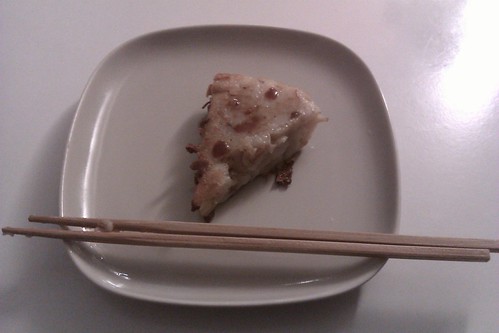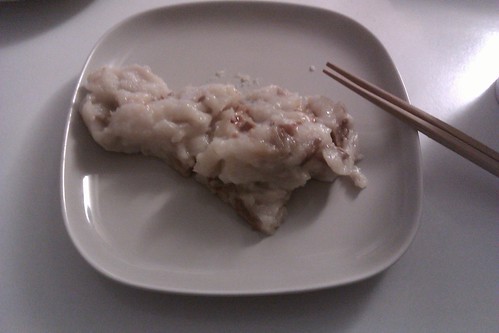A funny thing happened a few weeks back at Coredo Nihonbashi (コレド日本橋).
Coredo Nihonbashi is near our school. I had
run over there in the afternoon for a quick lunch. When I had finished eating, I ran back to school. On the way, one of my gloves fell out of my pocket.
●
run over to ~まで走っていく、~に駆け寄る (definition from Eijiro on the Web)
Later that evening, I was preparing to ride my bicycle home when I realized that one of my gloves was missing. I
figured I must have dropped it at Coredo, so I went back there to find it. I looked all of the places that I had been and asked the staff in the restaurant if they had seen it. They said they hadn't.
●
figure 計算する (definition from Eijiro on the Web)
Finally, I went looking for the security staff. I thought they must have a
lost-and-found. I found the employee entrance, which was locked, and knocked on the door to get the attention of the guard. He came and opened the door and asked me what I wanted. I explained to him in Japanese the story of my glove. He understood, and let me come to the counter while he checked a kind of log of found items.
●
lost and found 〈米〉遺失物取扱所、遺失物係
He seemed to have found it in the log, asked me to wait, and stepped away to a locker where those items could be found. Bringing back a plastic bag with my glove in it, he asked me if it was mine. I told him that it was and thanked him for keeping it for me. He then asked me to fill out a form, which I did.
I thanked him again and started to walk back to the door which I had entered from. Then he told me something that I couldn't quite understand. I asked him to repeat it, but somehow my Japanese wasn't good enough to
make out what he meant. That's when something really funny happened.
●
make out 理解する、分かる、判読する、認識する、~をようやく見分ける、見分ける、聞き分ける (definition from Eijiro on the Web)
"Th.. th... that... d... d... doooooooooor...* he struggled to tell me in English about the door, as if he couldn't make his mouth pronounce the words "... is locked," he continued, suddenly in perfectly pronounced English. He instantly sounded like a native speaker.
"Oh! You can speak English!" I said, surprised.
"Yes, I used to live in the US when I was a kid," he told me, again in perfectly pronounced native-speed English.
We talked for just a second, and then I left. It seems that he just hadn't spoken English for some time. He had just
gotten rusty.
●
be rusty〔練習不足により技術などが〕下手になった、鈍くなった、なまった (definition from Eijiro on the Web)
It seems that you don't really forget language that you have learned before. However, if you don't practice, it may not be right there
at your disposal when you need it.
●
at one's disposal (人)が自由に[好きなように・勝手に]使える[できる]、(人)の思う[意の]ままに (definition from Eijiro on the Web)
The moral of the story is:
don't stop practicing English! Keep your skills sharp!
By the way, how is that headline? Is it strange?




